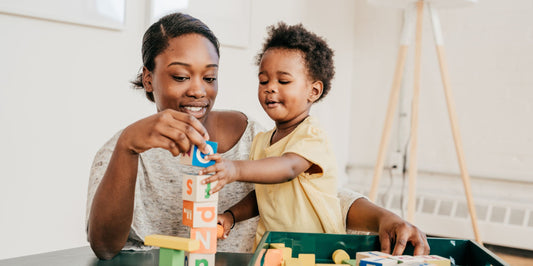Welcoming a new baby into the family is a joyous occasion, but it can also be a challenging adjustment for everyone involved—especially for your toddler. Balancing the needs of a newborn with those of an older child takes patience, planning, and a touch of creativity. Here’s a guide to help parents navigate this transition and help their toddler embrace their new role as a big sibling.
Preparing Your Toddler Before the Baby Arrives
1. Talk About the Baby: Begin preparing your toddler for the arrival of their sibling well in advance. Use age-appropriate language to explain what’s happening and what to expect.
2. Involve Them in Preparations: Let your toddler help with simple tasks like setting up the baby’s room or choosing a toy for their sibling. This can help them feel included and excited.
3. Read Books About Siblings: Stories about becoming a big brother or sister can help your toddler understand the concept and emotions involved.
4. Maintain Routines: Keep your toddler’s routines as consistent as possible. Predictability can provide a sense of security during times of change.
5. Practice with a Doll: Role-play with a doll to teach your toddler how to interact gently with the baby.
Introducing the Newborn to Your Toddler
1. Make the First Meeting Special: Arrange for the toddler to meet the baby in a calm and positive setting. Consider having a “gift” from the baby to the toddler as a gesture of love.
2. Acknowledge Their Feelings: It’s normal for toddlers to experience a range of emotions, from excitement to jealousy. Validate their feelings and offer reassurance.
3. Set Realistic Expectations: Explain what babies can and cannot do. For example, “The baby can’t play with toys yet, but they love it when you talk to them.”
Managing Day-to-Day Life
1. Create a Safe Play Area: Set up a toddler-friendly zone where they can play independently while you tend to the baby.
2. Prioritize One-on-One Time: Spend dedicated time with your toddler each day. Even 10-15 minutes of focused attention can help them feel valued and secure.
3. Encourage Helper Tasks: Give your toddler small jobs, like fetching a diaper or singing to the baby. This can foster a sense of responsibility and pride.
4. Use Positive Reinforcement: Praise your toddler for kind and gentle behavior toward the baby. Positive reinforcement can encourage them to build a loving bond.
5. Be Flexible: Accept that some days will be more chaotic than others. Focus on meeting everyone’s needs, not achieving perfection.
Tips for Handling Sibling Rivalry
1. Avoid Comparisons: Each child is unique. Celebrate their individual strengths instead of comparing them.
2. Watch for Signs of Jealousy: Address jealousy early with empathy and reassurance. For example, “I know it’s hard to share Mommy, but I love you just as much as always.”
3. Encourage Teamwork: Frame activities as opportunities to work together, such as building a block tower or tidying up toys.
4. Stay Calm During Conflicts: If your toddler acts out, remain patient and use it as a teaching moment. Explain appropriate behavior and guide them toward better choices.
Self-Care for Parents
Caring for two young children can be exhausting. Remember to:
- Ask for Help: Enlist support from your partner, family, or friends.
- Take Breaks: Even a short walk or quiet moment can recharge your energy.
- Set Realistic Goals: Focus on what truly matters and let go of perfectionism.
Transitioning from being an only child to becoming a big sibling is a significant milestone for your toddler, but with preparation and support, they can thrive in their new role. By balancing their needs with those of the newborn and fostering a loving connection between the siblings, you’ll help lay the foundation for a strong, lifelong bond.






